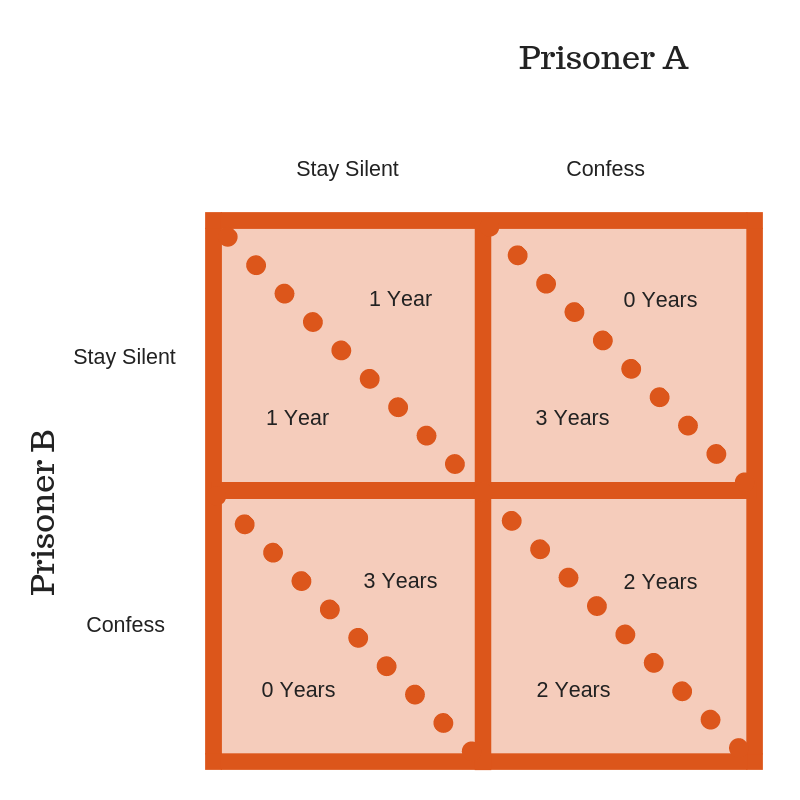Two troublemakers stole electronics from a retail store and are making a run for it! Unfortunately for them, the police end up arresting them and later bring them in for questioning. The police have been tipped that the robbers are in connection to a larger crime. Although there is only evidence for the current robbery at hand, the prisoner’s dilemma will cause the duo to turn each other in for the larger crime.
Each troublemaker (or “prisoner”) is brought in for questioning seperately.
Note: The troublemakers are to have no communication with one another throughout the process.
Each are told the same thing. You can either confess both of your involvement in the larger crime or you may stay silent. If you confess, you will NOT have to go to jail while your partner will have to go for the larger crime (3 years). If you and your partner do not confess, both of you will serve the time for only the robbery (1 year). BUT, if your partner confesses and you do not, you too will have to serve time (3 years). In the scenario where you both confess for the larger crime, you both will serve 2 years in jail. This is all very confusing, so here is a diagram that easily depicts the scenario.

What is the rational answer?
The rational answer, if one has self-interest, is to confess. You may hope your partner stays silent so you may go free and in the event that your partner DOES confess you are sheltered to 2 years rather than 3.
However…
The better outcome for the group is for both to stay silent. In this case, only 2 years total jail time are being served and neither have to go beyond 1 year each.
Should the prisoners choose in self-interest or choose interest for the group?
In reality, people have a natural inclination to cooperate with one another. Even in this scenario where the “rational” answer is to choose to confess and betray the other, people will sometimes go against that and instead stay silent. They do it with the idea of social reciprocity, understanding that the other would possibly do the same for them.

Reading Further
The prisoner’s dilemma is just a small fraction of strategic scenarios that mathematicians use to challenge our ability to make decisions based on how others are also making decisions. In fact, there is a name for this field of thinking! It’s called game theory. Check out Game-Changer: Game Theory and the Art of Transforming Strategic Situations by David McAdams
